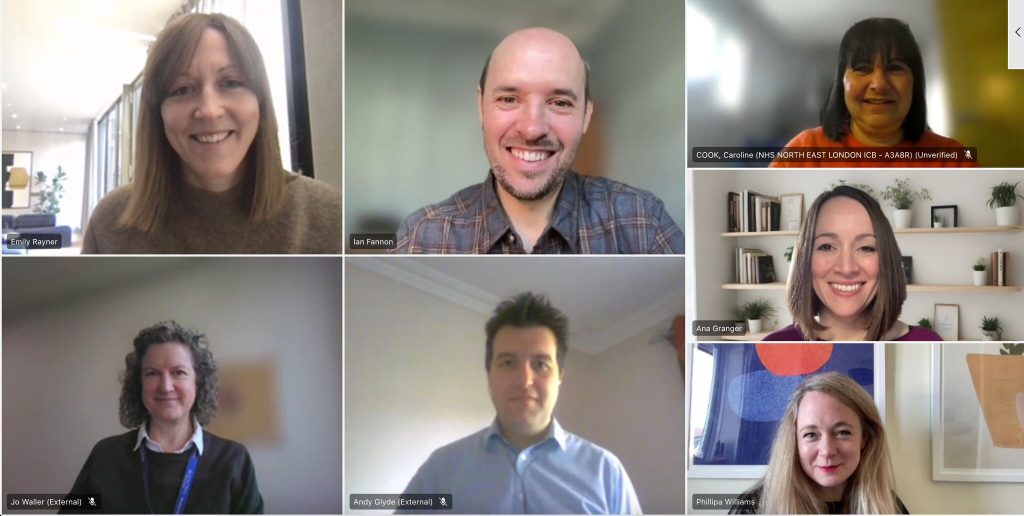Reviewing our behaviour change briefing webinar: Cancer Prevention in Focus

A big thanks to all our speakers at our latest behaviour change briefing webinar – Cancer Prevention in Focus – in which we explored whether the NHS can still achieve its cancer plan targets, and whether behaviour change is the answer.
We delved into the initiatives driving progress with cancer screening, including targeted interventions, community-driven approaches, and the role of behavioural science. We explored the multifaceted efforts aimed at improving cancer outcomes and reducing health disparities:
Ian Fannon, Managing Director at Claremont and Jo Waller, Professor of Cancer Behavioural Science at Queen Mary University London, presented an overview of the NHS’s efforts to improve early cancer diagnosis, focusing on behaviour change communications as a crucial aspect of achieving this goal.
The NHS is investing in interventions such as improving referral pathways, targeted interventions for high-risk populations, and innovative technologies. Behaviour change communication plays a crucial role in supporting these interventions, emphasising localised, community-driven approaches. Addressing systemic issues and understanding the role of behavioural science are highlighted as essential for achieving successful outcomes.
Next, Philippa Williams, Strategy Director at Claremont, and Andy Glyde, Early Diagnosis Campaign Strategy Lead at Bowel Cancer UK, discussed the campaign aimed at encouraging people experiencing symptoms to seek medical attention, highlighting the critical need for early diagnosis in improving bowel cancer survival rates.
Targeted out-of-home and digital advertising, alongside supportive user journeys and behavioural science insights, aim to guide individuals toward timely action and reduce delays in seeking medical advice. The panellists underscore the campaign’s comprehensive strategy, emphasising collaborative efforts, audience testing, and targeted messaging to effect meaningful behaviour change.
Emily Rayner, Senior Consultant at Claremont discussed the collaborative work alongside North East London Cancer Alliance’s Caroline Cook, Programme Lead for Early Diagnosis, to address the communication challenges within the “white other” audience. Primary research involved street interviews and focus groups, revealing insights such as easier access to screenings in Poland, distrust in the NHS, and reluctance among men to engage in screening. Co-design activities with the Polish community emphasised the importance of community settings, featuring Polish faces in communications, messaging that addresses anxieties, and shareable video content in Polish. Future plans include similar co-design activities with Turkish and Turkish Cypriot groups. Overall, the approach aims to tailor communication strategies to address specific cultural needs, fostering trust and engagement.
During the Q&A segment of the webinar, panellists discussed the challenges related to the NHS’ perceived capacity and the impact this has on early diagnosis, as well as the issue of health inequalities and the balance between providing reassurance to people while also emphasising the urgency of taking action on symptoms.
Many thanks to all who came. We’ve uploaded a recording on YouTube for anyone who’d like to watch (or re-watch).
